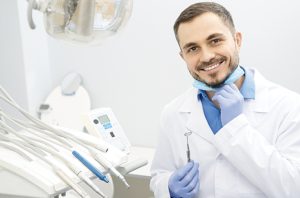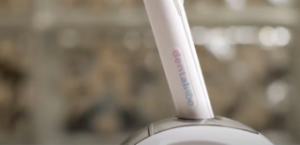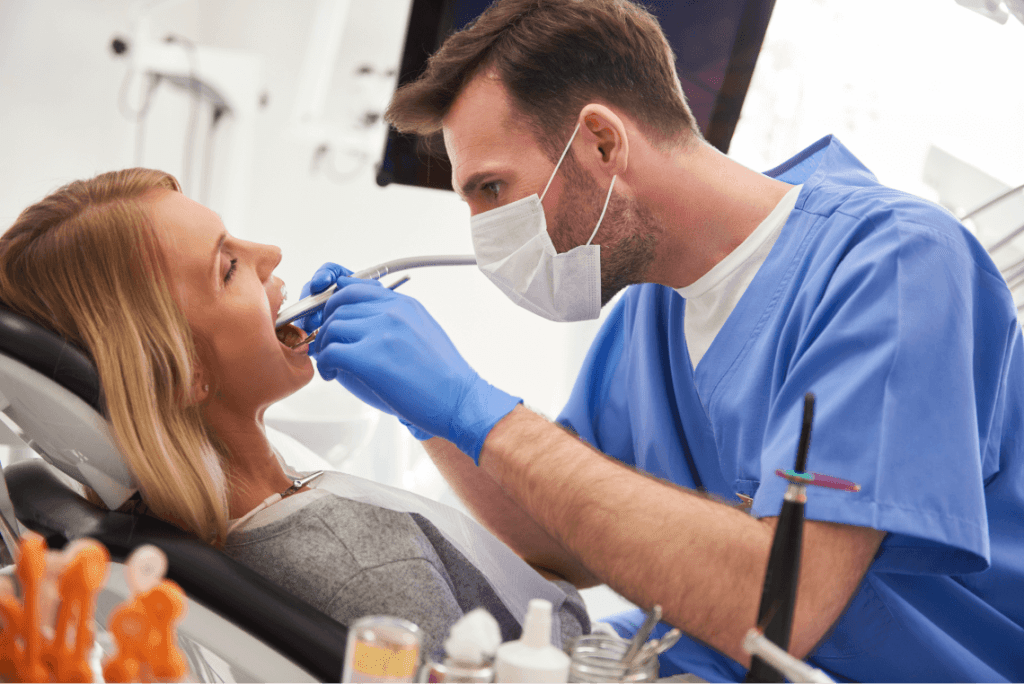There are many different studies that have been conducted and confirm the safety and effectiveness of using IV sedation. If a dentist requests that you be considered for IV sedation either because you are extremely anxious that your dental procedure may be long and unpleasant or you might have a pre-existing health condition and that it would be safer for you to be dealt with under sedation.
About Your Intravenous Sedation for Dental Surgery
IV sedation or in other words ‘conscious sedation’ is accomplished by using a combination of drugs which are going to make you very sleepy and comfortable and might even prevent you from recalling anything about the procedure. It is not a general anaesthesia and you will not be passed out. You may even be able to speak to your dentist during the entire procedure, though you may not recall this.
These medications will be administered by injection into your bloodstream through a small cannula put into a vein, usually on the rear of your hand, securely held in place by a clear dressing and will remain there until you are prepared to go home with your aide.
Your dentist will provide you with a local anaesthetic injection inside your gum before commencing with the process, however you will also be getting pain-killing drugs through the needle in your hand to avoid excessive pain.
You might also be given oxygen in order to breathe during the whole procedure and this will be administered through a tiny spongy tube positioned just within the nostril.
Dangers Arising from Iv Sedation
IV sedation or ‘conscious sedation’ is usually very safe. Your sedation is to be managed by a specialist anaesthetist with numerous years of experience. His assistant is usually a registered general nurse (RGN) who has anaesthetic training as well. Together your anaesthetist and anaesthetic nurse possess a sophisticated life support training. You will be completely examined by ECG, blood pressure, heart rate and the measurement of the amount of oxygen in your blood flow. These observations will be conducted and logged during the entire procedure and together the anaesthetist and his assistant are going to be with you all the time. The rooms are also equipped with a full spectrum of resuscitation equipment as well as oxygen.
Though dangers do exist, while at the same time these are typically provisional and linked to the general anaesthesia, some of them might cause long term issues. Dentists are obliged to provide you with as much information as they can prior to your procedure – INFORMED CONSENT – and so we have included in the list these below:
Common Side Effects
- Nausea and vomiting
- Headaches
- Soreness or bruises at injection site
- Pain in the throat and jaws
- Distorted or dual vision
- Irritated / sore nose
Less Common Side Effects
- Muscular aches and pains
- Weakness
- Minor allergic response – scratching or rashes
Uncommon Side Effects
- Allergic responses and/or wheezing
- Blood clots in the leg
- Injury to the nerves and stress areas
- Epileptic attacks
Rare Risks Which Cause Death
- Serious allergy or shock
- Extremely high temperature
- Cardiac Arrest or a heart attack
- Vomit inside the lungs
- Paralyzed
- Blood clot within the lungs
- Brain Damage
INCREASED RISKS
These risks are heightened in the elderly patients and also by:
- A terrible cold or flu, illness or other chest infection
- Tobacco Use
- Being obese
- Diabetics
- Cardiovascular disease
- Kidney problems
- Increased blood pressure
- Other severe medical conditions
Remember, these adverse reactions are generally minor and unusual but have been encompassed as a part of the obligation of providing you with informed agreement.
Your Responsibilities Prior To Having Intravenous Sedation for Your Dental Surgery
You are at less risk from your IV sedation prior to getting your dental surgery done if you do the following:
- Improve your fitness – boost your blood flow and respiratory health
- Give up on cigarettes at least 6 weeks before the operation to assist your lungs and heart to improve. Allow your dentist and anaesthetist to understand that you smoke
- Take in your recommended / herbal drugs. Report any allergic reactions / adverse reactions that you might have to any medications
- Drink less liquor – this might affect the manner in which the sedative drugs work. DO NOT drink any liquor for 24 hours before the sedation
- Halt taking recreational medications – these may have an impact on the way the sedative medications work. If you have drug dependence please inform your dentist and anaesthetist
- If you are taking aspirin please inform your dentist and anaesthetist, this could affect your blood clotting process
- If you take the birth control pill or might be pregnant please inform the dentist and anaesthetist
It is extremely important to tell your dentist and anaesthetist of any of the next:
- Health issues
- Contagious diseases
- Prior operations
- Serious diseases
- Fake teeth
- Loose-fitting teeth
- Crowns (caps)
- Prosthetics
- Any health problems requiring regular therapy or stays in hospital
ON YOUR DAY OF SURGERY
You can eat food and drink beverages up to 4 hours in advance to your surgery.
You can then have clear liquids e.g. tap water up to 2 hours in advance to your surgery.
For the last 2 hours before the operation you SHOULD NOT have something to eat or drink at all. This comprises of having gum or licking lollipops and is to guarantee that your stomach is completely empty. This reduces the chance of you being sick under IV sedation and breathing in the vomit in the lungs which is a possibly a life-threatening condition.
You shall only be able to continue with your IV sedation if you have a adult in charge who will drive you home at the end of the following procedure (a cab driver is not appropriate!) and who will be able to remain with you for the following 24 hours.
Please wear suitable loose-fitting clothes – the dentist will need to have access to your upper arms for blood pressure display and the chest for the ECG.
Please do not use lipstick or nail polish on the day of the operation.
If these guidelines are not abided by, your procedure is going to have to be postponed or even rescheduled.
RECOVERING FROM YOUR IV SEDATION
The anesthesiologist will give you a medication to reverse the consequences of the sedative effect, he will make sure that you are pain free and cure any nausea and vomiting. He will monitor you carefully and your vital signs would continue to be closely monitored and recorded.
You shall only be released from his care when you are completely alert, able to take a stroll, have gotten a drink and he is happy with your status and your vital signs are all within the normal range.
Only then will your needle be withdrawn from the back of the hand and a little pressure dressing will be implemented.
It is recommended for you to spend the remainder of the day in the home sleeping quietly under the care of a liable adult aide.
Things To Avoid After Your Intravenous Sedation
IV sedation will impact your judgement for approximately 24 hours. During this period you MUST NOT:
- Run any type of motor vehicle
- Work machinery
- Climb stairs or go to work from heights
- Make any significant decisions or sign up a legal document
- Alcohol consumption, take other mind-changing chemicals, or smoke. These can react with the sedative medications
















